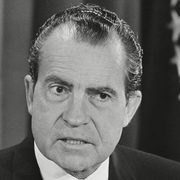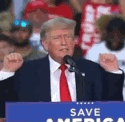- Blowdryer
- Jan 25, 2008
-
|
My previous post with articles from the Atlantic
quote:
Yale
http://www.theatlantic.com/politics/archive/2015/11/the-new-intolerance-of-student-activism-at-yale/414810/
...before Halloween, some students complained to them that Yale administrators were offering heavy-handed advice on what Halloween costumes to avoid.
Erika Christakis reflected on the frustrations of the students, drew on her scholarship and career experience, and composed an email inviting the community to think about the controversy through an intellectual lens that few if any had considered. Her message was a model of relevant, thoughtful, civil engagement.
For her trouble, a faction of students are now trying to get the couple removed from their residential positions, which is to say, censured and ousted from their home on campus. Hundreds of Yale students are attacking them, some with hateful insults, shouted epithets, and a campaign of public shaming. In doing so, they have shown an illiberal streak that flows from flaws in their well-intentioned ideology.
..................
But none of that excuses the Yale activists who’ve bullied these particular faculty in recent days. They’re behaving more like Reddit parodies of “social-justice warriors” than coherent activists, and I suspect they will look back on their behavior with chagrin. The purpose of writing about their missteps now is not to condemn these students. Their young lives are tremendously impressive by any reasonable measure. They are unfortunate to live in an era in which the normal mistakes of youth are unusually visible. To keep the focus where it belongs I won’t be naming any of them here.
The focus belongs on the flawed ideas that they’ve absorbed.
Everyone invested in how the elites of tomorrow are being acculturated should understand, as best they can, how so many cognitively privileged, ordinarily kind, seemingly well-intentioned young people could lash out with such flagrant intolerance.
...................................
All over America, dispensing Halloween costume advice is now an annual ritual performed by college administrators.
Erika Christakis was questioning that practice when she composed her email, adding nuance to a conversation that some students were already having. Traditionally, she began, Halloween is both a day of subversion for young people and a time when adults exert their control over their behavior: from bygone, overblown fears about candy spiked with poison or razorblades to a more recent aversion to the sugar in candy.
“This year, we seem afraid that college students are unable to decide how to dress themselves on Halloween,” she wrote. “I don’t wish to trivialize genuine concerns about cultural and personal representation, and other challenges to our lived experience in a plural community. I know that many decent people have proposed guidelines on Halloween costumes from a spirit of avoiding hurt and offense. I laud those goals, in theory, as most of us do. But in practice, I wonder if we should reflect more transparently, as a community, on the consequences of an institutional (bureaucratic and administrative) exercise of implied control over college students.”
It’s hard to imagine a more deferential way to begin voicing her alternative view. And having shown her interlocutors that she respects them and shares their ends, she explained her misgivings about the means of telling college kids what to wear on Halloween:
I wanted to share my thoughts with you from a totally different angle, as an educator concerned with the developmental stages of childhood and young adulthood.
As a former preschool teacher... it is hard for me to give credence to a claim that there is something objectionably “appropriative” about a blonde haired child’s wanting to be Mulan for a day. Pretend play is the foundation of most cognitive tasks, and it seems to me that we want to be in the business of encouraging the exercise of imagination, not constraining it.
I suppose we could agree that there is a difference between fantasizing about an individual character vs. appropriating a culture, wholesale, the latter of which could be seen as (tacky)(offensive)(jejeune)(hurtful), take your pick. But, then, I wonder what is the statute of limitations on dreaming of dressing as Tiana the Frog Princess if you aren’t a black girl from New Orleans? Is it okay if you are eight, but not 18? I don’t know the answer to these questions; they seem unanswerable. Or at the least, they put us on slippery terrain that I, for one, prefer not to cross.
Which is my point.
I don’t, actually, trust myself to foist my Halloweenish standards and motives on others. I can’t defend them anymore than you could defend yours.
When I was in college, a position of this sort taken by a faculty member would likely have been regarded as a show of respect for all students and their ability to think for themselves. She added, “even if we could agree on how to avoid offense,” there may be something lost if administrators try to stamp out all offense-giving behavior:
I wonder, and I am not trying to be provocative: Is there no room anymore for a child or young person to be a little bit obnoxious... a little bit inappropriate or provocative or, yes, offensive? American universities were once a safe space not only for maturation but also for a certain regressive, or even transgressive, experience; increasingly, it seems, they have become places of censure and prohibition. And the censure and prohibition come from above, not from yourselves! Are we all okay with this transfer of power? Have we lost faith in young people's capacity—in your capacity to exercise selfcensure, through social norming, and also in your capacity to ignore or reject things that trouble you?
In her view, students would be better served if colleges showed more faith in their capacity to work things out themselves, which would help them to develop cognitive skills. “Nicholas says, if you don’t like a costume someone is wearing, look away, or tell them you are offended. Talk to each other. Free speech and the ability to tolerate offence are hallmarks of a free and open society,” she wrote. “But—again, speaking as a child development specialist—I think there might be something missing in our discourse about … free speech (including how we dress) on campus, and it is this: What does this debate about Halloween costumes say about our view of young adults, of their strength and judgment? In other words: Whose business is it to control the forms of costumes of young people? It's not mine, I know that.”
That’s the measured, thoughtful pre-Halloween email that caused Yale students to demand that Nicholas and Erika Christakis resign their roles at Silliman College. That’s how Nicholas Christakis came to stand in an emotionally charged crowd of Silliman students, where he attempted to respond to the fallout from the email his wife sent.
Watching footage of that meeting, a fundamental disagreement is revealed between professor and undergrads. Christakis believes that he has an obligation to listen to the views of the students, to reflect upon them, and to either respond that he is persuaded or to articulate why he has a different view. Put another way, he believes that one respects students by engaging them in earnest dialogue. But many of the students believe that his responsibility is to hear their demands for an apology and to issue it. They see anything short of a confession of wrongdoing as unacceptable. In their view, one respects students by validating their subjective feelings.
Notice that the student position allows no room for civil disagreement.
Given this set of assumptions, perhaps it is no surprise that the students behave like bullies even as they see themselves as victims. This is most vividly illustrated in a video clip that begins with one student saying, “Walk away, he doesn’t deserve to be listened to.”
................
Just read the whole article it's long.
Mizzou
http://www.theatlantic.com/politics/archive/2015/11/how-campus-activists-are-weaponizing-the-safe-space/415080/
First Amendment protections for photographers are vital. And I agree with my colleague, James Fallows, that Tai demonstrated impressive intellectual and emotional poise. But video of his encounter with protestors is noteworthy for another reason.
In the video of Tim Tai trying to carry out his ESPN assignment, I see the most vivid example yet of activists twisting the concept of “safe space” in a most confounding way. They have one lone student surrounded. They’re forcibly preventing him from exercising a civil right. At various points, they intimidate him. Ultimately, they physically push him. But all the while, they are operating on the premise, or carrying on the pretense, that he is making them unsafe.
It is as if they’ve weaponized the concept of “safe spaces.”
“I support people creating ‘safe spaces’ as a shield by exercising their freedom of association to organize themselves into mutually supporting communities,” Ken White wrote prior to this controversy. “But not everyone imagines ‘safe spaces’ like that. Some use the concept of ‘safe spaces’ as a sword, wielded to annex public spaces and demand that people within those spaces conform to their private norms.”
Yesterday, I wrote about Yale students who decided, in the name of creating a “safe space” on compass, to spit on people as they left a talk with which they disagreed. “In their muddled ideology,” I wrote, “the Yale activists had to destroy the safe space to save it.”
also, gently caress the police media
1) https://libcom.org/news/snitches-get-pulitzers-10112015
quote:Journalists document social movements solely to advance their careers, but their work often helps the police and employers target people who take direct action
Seemingly out of nowhere, for those of us on the outside, a fight against racism at the University of Missouri rapidly spread from a hunger strike, to a football player strike, to a walkout by the faculty. This has culminated in the resignation of the president of the school as well as the chancellor.
Many of the people who have taken these actions have risked their positions as students and staff and therefore have something to lose by their participation. Some may have even broken the law by occupying public spaces. Certainly, some will fear being targeted in the future, after the media blitz has died down and the new school leadership tries to put everything back to “normal.”
These rapid developments mean that the media has suddenly swarmed this campus looking to report the story, so there is a need to protect people taking these risks from being targeted for their participation. One result has been that journalists are sometimes limited by activists from photographing people who do not want to be photographed, or from simply harassing them. The consequence of these actions was documented in a series of videos, one in particular showing a group of students refusing to allow a photographer access to a tent city on campus, even locking arms and chanting “hey hey, ho ho, reporters have got to go!”
The outrage at this assault on the First Amendment–we are told–was swift. Josh Greenman, an editor at New York Daily News, tweeted that “Without media, no attention. No attention, no pressure. No pressure, no victory. (Also, this is just wrong.)” One might think from Greenman that it was journalists who risked their jobs to fight racism, and not the students and faculty. Another dismissive commenter was Freddie deBoer, a well known critic of “call out culture” and “trigger warnings” and anything that might reflect on students as seeming to be too sensitive of racism and sexism. He tweeted one of the videos and added “I’m thrilled these protesters got the president to resign, but this isn’t cool.” Since the area restricted from the media was called a “No media safe space,” it must have immediately raised deBoer’s ire, who probably saw the incident as an organized trigger warning carried out by a mob and not an occupation of public space contending with the administration over who rules the campus. It is an honest mistake for somebody who is absolutely clueless about these things.
With the hand wringing over the First Amendment and the cries of political correctness run amok, it would sound like the students at Missouri have fallen off the deep end and completely lost focus of what their movement is about. In fact, the exact opposite is true. The restrictions on the media and the willingness to enforce them represent a relatively advanced level of organization and consciousness beyond mere symbolic protest. The people wringing their hands over the First Amendment simply want the students to hold up signs opposing racism. These people can only view direct action through their narrow ideological spectrum. To them, politics is about winning over the media with friendly messages, not disrupting the status quo and shutting down schools and workplaces. They have never risked anything to be a part of a potentially dangerous struggle and they cannot even begin to understand the problems raised by these type of actions.
There is plenty of precedent for these concerns about the media. The Occupy movement in some places was notorious for having a hostile relationship with the media, precisely because of the heightened risk of arrest involved in occupying public space. There are numerous examples of people who had their picture taken doing something possibly illegal and then found it used against them in court or fired from their jobs. Additionally, there is already one professor at the University of Missouri in the video who has come under increased scrutiny and has resigned one position and may face further repercussions. The problem is not the she was too overzealous in protecting students. The problem is that in her zeal, she and others did not recognize that the real threat was another video camera. She is being harassed and targeted for attempting to help keep other people from being similarly harassed and targeted. Not a single journalist in the US will recognize the irony as they are too busy complaining about how their rights are being infringed.
More drastically, the recent rebellions against police murdering Black people have seen precisely these consequences faced by the participants. The most iconic photograph from Ferguson, Missouri, depicts an African-American man wearing a US flag shirt while throwing a tear gas canister, presumably at the police. This image, among others, won the photographer a Pulitzer prize, the most coveted award for journalism in the US. Meanwhile, a year after this photo was taken, the person throwing the canister was charged with interfering with a police officer, a charge which would not have occurred without the photo as evidence
A similar case occurred in Baltimore where a young man was photographed on top of a police car while smashing the window. With this evidence, he was charged with eight criminal counts and given $500,000 bail. The photo was taken by a photographer with Agence France-Presse and widely distributed throughout the media.
In short, journalists who arrive to document historic social movements do so at the peril of the people who are making it. Any struggle that engages in tactics that are disruptive or potentially illegal–not to mention in some cases extremely illegal–will be wise to take a skeptical view of what the media are doing and strategize to keep them from harming people.
Journalists and their liberal supporters are often horrified at these supposed assaults on their rights, while doing nothing to support the people who are put in jail by police with evidence they sell and use to pad their resumes. Journalists arrive solely to advance their careers and will happily use and abuse the sacrifices of people in a movement to do so. Restricting their ability to get people arrested and fired is a necessary part of an anti-repression strategy for any direct action movement.
2) https://www.washingtonpost.com/post...e-media-around/
quote:
Video of a confrontation between a news photographer and protesters at the University of Missouri on Monday led to a dispute between journalists and the activists’ sympathizers beyond the campus walls. In response to a series of racial issues at the university, a circle of arm-linked students sought to designate a “safe space” around an encampment on the campus quad. When they blocked journalist Tim Tai from photographing the encampment, reporters complained that media were denied access to a public space.
Certainly, Tai – like any journalist – had a legal right to enter the space, given that it was in a public area. But that shouldn’t be the end of this story. We in the media have something important to learn from this unfortunate exchange. The protesters had a legitimate gripe: The black community distrusts the news media because it has failed to cover black pain fairly.
As a journalist, I understand how frustrating it is to be denied access to a person or place that’s essential to my story. I appeared with other journalists on local media in New York City to discuss our frustration over Mayor Bill de Blasio’s sometimes standoffish attitude towards the press. He is a public figure whose salary is paid with tax dollars. He is obligated to be accessible to us.
That was not the dynamic Tai encountered on Monday. These student protesters were not a government entity stonewalling access to public information or a public official hiding from media questions. They were young people trying to create a safe space from not only the racism they encounter on campus, but the insensitivity they encounter in the news media. In the outsized conversation that erupted about First-Amendment rights, journalists drowned out the very message of the students Tai was covering.
As journalists, we should strive to understand the motivations of the people we cover. In this case, black students at the University of Missouri have had a string of racist encounters on campus: The president of the students’ association has been called the N-word and other black students have been racially harassed while participating in campus activities. A Missouri journalism professor wrote in the Huffington Post that she has been called the n-word “too many times to count” during her 18 years at the university. In February 2010, black students woke up to cotton balls strewn over on the campus yard. The crime, carried out by white students, was designed to invoke the image of plantation slavery. University president Tim Wolfe resigned Monday after graduate student Jonathan Butler went on a hunger strike to protest the very public racism he and many black students believe the school did little to address.
Establishing a “safe space” was about much more than denying the media access; it was about securing a rare space where their blackness could not be violated. Yes, the hunger strike, the safe space and other student demonstrations were protests, and protests should be covered. But what was fueling those protests was black pain. In most circumstances, when covering people who are in pain, journalists offer extra space and empathy. But that didn’t happen in this case; these young people weren’t treated as hurting victims.
To be clear, my objective is not to impugn Tai’s character or journalistic integrity. I agree that Tai was doing his job and his past outstanding work speaks for itself. But in this conversation over “public space,” we’ve overlooked the protesters’ message — that conditions on campus make it an unbearable environment for black students to live and learn. Their approach to creating a safe space probably could have been better thought out, but the media should feel a responsibility to understand their motivations and respect their pain.
Further, as reporters, we have to drop our sense of entitlement and understand that not everyone wants to be subjects of our journalism. Our press passes don’t give us the license to bully ourselves into any and all spaces where our presence is not appreciated.
In many communities that historically have been marginalized and unfairly portrayed by the media, there’s good reason why people do not trust journalists. There’s a tendency in news media to criminalize black people’s pain and resistance to racial oppression. We saw it in coverage of Ferguson and Baltimore, when news stations provided more coverage of broken windows in their communities than of black pain.
The unfair portrayal of black people in the news media is well documented. In one study analyzing news coverage by 26 local television stations, black people were rarely portrayed unless they had committed a crime. A 2015 University of Houston study found that this imbalanced coverage may lead viewers to develop racial bias against black people because it often over-represents them in crime rates. Recognizing this kind of bias in news media, black Twitter users started the #IfTheyGunnedMeDown hashtag to call out news images of Mike Brown that many felt criminalized him in his death.
That black students would be skeptical of media is understandable. We’ve already seen the kind of headlines they undoubtedly feared. In an Atlantic piece headlined “Campus Activists Weaponize ‘Safe Space’,” Conor Friedersdorf calls the protesters a mob and insists they are “twisting the concept of ‘safe space.’” Again, a journalist criminalizes black people for expressing their pain. It was another piece centering the reporter’s privilege over the students’ trauma. Friederdorf’s piece completely ignores the intolerable racial climate that forced the students to establish a safe space in the first place.
There were other ways to cover these students’ protest without breaching their safe space and without criminalizing them.The human chain students formed provided ample b-roll and still photos. Students could have been interviewed outside of that space. I would have pitched a story to my editors with the headline, “Why Black Students Were Forced To Secure A Safe Space On A Public Campus.” But to do that requires self-reflection and not a condescending, self-absorbed soliloquy about the First Amendment.
For journalists, the Missouri protests are a big news story. For the black students we’re covering, however, it’s a fight for their humanity and liberation. Tai is correct: he was doing his job. But in that stressful moment he may have failed to realize that the space he wanted to enter was a healing one that black people had worked to secure.
Black pain is not an easy subject to cover, but the lesson we can take from this encounter at Missouri is that our presence as journalists, with the long legacy of criminalizing blackness that comes with it, may trigger the same harmful emotions that led to the students’ protests in the first place.
New Yorker put up an article as well:
http://www.newyorker.com/news/news-desk/race-and-the-free-speech-diversion
quote:
Of the many concerns unearthed by the protests at two major universities this week, the velocity at which we now move from racial recrimination to self-righteous backlash is possibly the most revealing. The unrest that occurred at the University of Missouri and at Yale University, two outwardly dissimilar institutions, shared themes of racial obtuseness, arthritic institutional responses to it, and the feeling, among students of color, that they are tenants rather than stakeholders in their universities. That these issues have now been subsumed in a debate over political correctness and free speech on campus—important but largely separate subjects—is proof of the self-serving deflection to which we should be accustomed at this point. Two weeks ago, we saw a school security officer in South Carolina violently subdue a teen-age girl for simple noncompliance, and we actually countenanced discussion of the student’s culpability for “being disruptive in class.” The default for avoiding discussion of racism is to invoke a separate principle, one with which few would disagree in the abstract—free speech, respectful participation in class—as the counterpoint to the violation of principles relating to civil rights. This is victim-blaming with a software update, with less interest in the kind of character assassination we saw deployed against Trayvon Martin and Michael Brown than in creating a seemingly right-minded position that serves the same effect.
Here is the Atlantic’s Conor Friedersdorf on the free speech issues at play in the Yale protests:
In “The Coddling of the American Mind,” Greg Lukianoff and Jonathan Haidt argued that too many college students engage in “catastrophizing,” which is to say, turning common events into nightmarish trials or claiming that easily bearable events are too awful to bear. After citing examples, they concluded, “smart people do, in fact, overreact to innocuous speech, make mountains out of molehills, and seek punishment for anyone whose words make anyone else feel uncomfortable.” What Yale students did next vividly illustrates that phenomenon.
David French strikes a similar note of democratic indignation about the Missouri protesters in the National Review:
The entire notion that these students need a “safe space” is a lie. They aren’t weak. They don’t need protection. They’re engaged in a classic struggle for power—for now against weak, ineffectual, and cowardly opposition. Why would they debate when they’ve proven they can dictate terms? Why would they answer tough questions when they have no satisfactory answers? So they simply push the press away, and the press meekly complies. Pathetic.
At issue are a black student’s angry denunciation of a Yale professor and the Missouri protesters’ daft media strategy of blockading reporters from a public demonstration. The conflict between the Yale student and Nicholas Christakis, the master of the university’s Silliman College—whose wife, Erika, the associate master of the college, wrote an e-mail encouraging students to treat Halloween costumes that they find racially offensive as a free-speech issue, in response to a campus-wide e-mail encouraging students to consider whether their costumes could offend—was recorded on a cell phone and posted on the Internet. The Foundation for Individual Rights in Education, a national campus free-speech organization, posted the video to their Web site. Since then, a young woman who argues with Christakis in the footage has been called the “shrieking woman” by the National Review and subjected to online harassment and death threats. Surely these threats constitute an infringement upon her free speech—a position that has scarcely been noted amid the outraged First Amendment fundamentalism. This rhetorical victory recalls the successful defense in the George Zimmerman trial, which relied upon the tacit presumption that the right to self-defense was afforded to only one party that night—coincidentally, the non-black one. The broader issue is that the student’s reaction elicited consternation in certain quarters where the precipitating incident did not. The fault line here is between those who find intolerance objectionable and those who oppose intolerance of the intolerant.
The upheaval at Yale and the protests that forced the resignation of University of Missouri President Timothy Wolfe and of Chancellor R. Bowen Loftin are both a product of and distinct from the Black Lives Matter moment we currently inhabit. Students from the University of Missouri participated in protests in Ferguson last year; as the climate on campus became more fraught, activists from Ferguson visited and advised the students. Six weeks ago, I participated in a forum at Yale on the massacre in Charleston. When the historian Edward Ball pointed out that the shootings had occurred on Calhoun Street, named for the intellectual godfather of the Confederacy, students immediately pointed out that Calhoun was an alumnus and that a college is still named for him. One member of the audience asked Jonathan Holloway, a civil-rights historian and the dean of Yale College, who has been at the center of the recent events, if he would remove Calhoun’s name from the college. (Holloway, who previously served as the master of Calhoun College, indicated that he had not yet decided how he would handle the matter.) To understand the real complexities of these students’ situation, free-speech purists would have to grapple with what it means to live in a building named for a man who dedicated himself to the principle of white supremacy and to the ownership of your ancestors. That this issue has arisen on the rarified grounds of an Ivy League campus doesn’t diminish the example; it makes it a more pointed illustration that no amount of talent or resources or advantage can shield you entirely from the minimizing sentiments so pervasive in this country. (It’s a lesson that has been vividly illustrated in Barack Obama’s two terms.)
Faculty and students at both Yale and the University of Missouri who spoke to me about the protests were careful to point out that they were the culmination of long-simmering concerns. “It’s clear that the students’ anger and resentment were long in coming,” Holloway told me. “This is not about one or two things. It’s something systemic and we’re going to have to look at that.” The most severe recent incidents at both institutions—shouts of “friend of the family” directed at a black student at Missouri, a purported “white girls only” Yale fraternity party—will sound familiar to anyone who works at or even has substantial contact with an institution of higher education. Last month, women’s and civil-rights groups filed a Title IX complaint that campuses have not done enough to rein in Yik Yak, an anonymous forum that effectively serves as a clearinghouse of digital hostility. Last year, at the University of Connecticut, where I teach, white fraternity members harassed and purportedly shouted epithets at members of a black sorority; the incident generated an afterlife of hostility on Internet forums, where black female students were derided and ridiculed. Eight months ago, fraternity members at the University of Oklahoma were filmed singing an ode to lynching.
These are not abstractions. And this is where the arguments about the freedom of speech become most tone deaf. The freedom to offend the powerful is not equivalent to the freedom to bully the relatively disempowered. The enlightenment principles that undergird free speech also prescribed that the natural limits of one’s liberty lie at the precise point at which it begins to impose upon the liberty of another.
During the debates over the 1964 Civil Rights Act, Senator J. Lister Hill, of Alabama, stood up and declared his opposition to the bill by arguing that the protection of black rights would necessarily infringe upon the rights of whites. This is the left-footed logic of a career Negrophobe, which should be immediately dismissed. Yet some variation of Hill’s thinking animates the contemporary political climate. Right-to-offend advocates are, willingly or not, trafficking in the same sort of argument for the right to maintain subordination. They are, however, correct in one key respect: there are no safe spaces. Nor, from the look of things, will there be any time soon.
Basically this is a really nuanced issue it seems. On one hand the Atlantic is right about somewhat hypocritical behavior in how journalists were dealt with and then, on the other hand, WaPo, Libcom, and the New Yorker are right about the distracting narrative of focusing on free speech and the legitimate reasons for which the students would not want media there.
|






































 "
"
